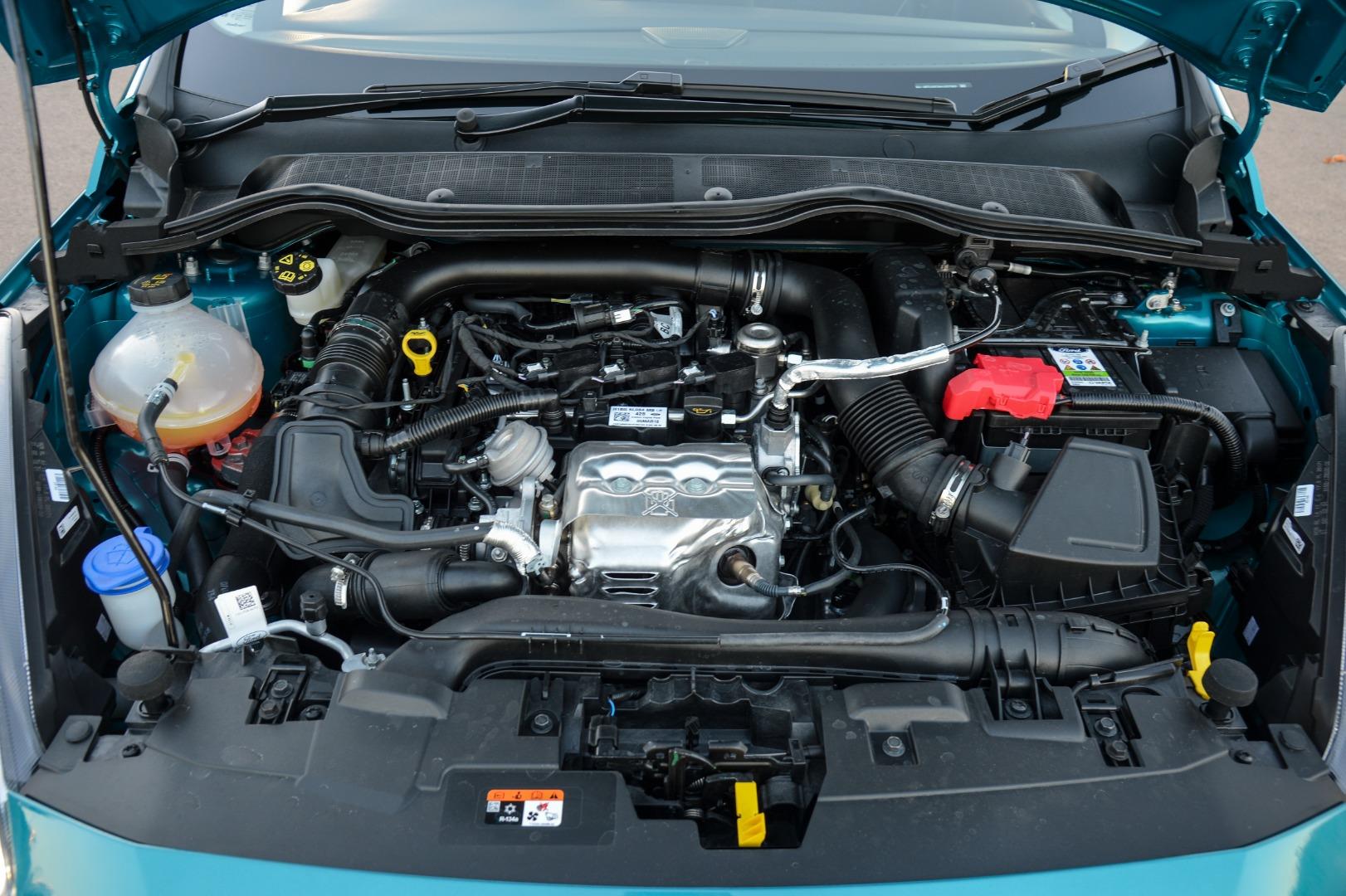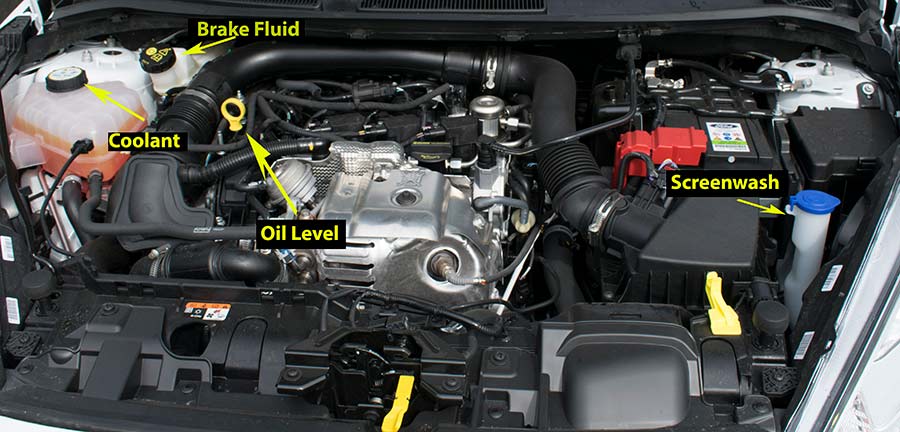Protect Your Investment with Proper Ford Fiesta Engine Maintenance
Protect Your Investment with Proper Ford Fiesta Engine Maintenance
Blog Article
The Future of Engines: Developments Driving Lasting Power Solutions
As the automotive sector browses the essential transition in the direction of sustainability, the future of engines is increasingly specified by groundbreaking developments. Electric engine developments, along with promising developments in hydrogen gas cells and biofuels, are improving the landscape of power solutions. The emergence of crossbreed systems further complicates this evolution, offering both obstacles and opportunities to decrease discharges effectively. Coupled with the assimilation of expert system in engine layout, these technological strides increase critical questions regarding their long-term viability and effect on conventional paradigms. What might this imply for the industry and customers alike?
Electric Engine Advancement
The evolution of electric engine advancements represents a crucial shift in the automobile and aerospace markets, driven by the immediate demand for lasting alternatives to nonrenewable fuel sources. This change is characterized by considerable advancements in battery modern technology, power electronic devices, and electric motor layout, which collectively enhance the efficiency and efficiency of electric engines.
Current developments have caused the creation of lighter, a lot more energy-dense batteries, such as lithium-silicon and solid-state batteries, which guarantee longer arrays and much shorter billing times. In addition, enhancements in electric motor efficiency, such as making use of long-term magnets and advanced cooling down systems, make it possible for electric engines to run efficiently under varying problems. These enhancements not just boost car efficiency yet additionally add to a decrease in overall power usage.
Furthermore, the combination of sophisticated software application algorithms has optimized energy management in electric automobiles, permitting regenerative braking and predictive billing strategies. As suppliers increasingly welcome electric propulsion, the aerospace and automotive markets are seeing a standard change in the direction of greener modern technologies. This development not just satisfies regulatory needs yet likewise straightens with consumer preferences for environmentally friendly transport solutions, strengthening electric engines as a foundation of future sustainable flexibility.
Developments in Biofuels
As the aerospace and auto industries progressively prioritize sustainable energy resources, innovations in biofuels become a corresponding option to electric engines. Biofuels, originated from organic products such as crops, waste, and algae, provide a cutting-edge avenue for decreasing greenhouse gas discharges and reliance on fossil gas.
Current research study has actually concentrated on boosting the effectiveness and sustainability of biofuel production. Second-generation biofuels make use of non-food feedstocks, lessening competition with food supply and minimizing environmental impact. Advancements in synthetic biology have actually enabled the engineering of microorganisms to create biofuels much more successfully, leading to greater returns and reduced manufacturing prices.
Additionally, the growth of drop-in biofuels enables smooth combination into existing framework, making it possible for a smoother transition for sectors typically based on fossil gas. ford fiesta engine. These fuels can be used in present engines without alterations, facilitating their adoption across different sectors
Investments in biofuel modern technology, in addition to supportive policies, are necessary to drive development and scalability. As the worldwide area seeks to combat environment modification, biofuels provide a pragmatic, prompt option that straightens with the overarching objective of sustainability in transportation and air travel.
Hydrogen Fuel Cell Modern Technology
A growing variety of researchers and business are exploring hydrogen fuel cell innovation as a viable option to traditional power resources in transport and energy systems. This technology converts chemical power from hydrogen right into power through an electrochemical response, with water as the only by-product, making it an eco-friendly alternative.
The core of hydrogen gas cells is the gas cell pile, where hydrogen particles are divided into protons and electrons. The flow of electrons generates power, while protons move via a membrane layer to integrate with oxygen from the air, forming water. This process results in high efficiency and reduced emissions, placing hydrogen gas cells as a critical gamer in the transition to lasting power.
Substantial advancements have actually been made in enhancing the resilience and efficiency of fuel cells, along with minimizing prices via ingenious manufacturing methods. The development of hydrogen manufacturing approaches, such as electrolysis powered by eco-friendly energy resources, improves the sustainability of the total system. As framework for hydrogen refueling expands investigate this site and manufacturing techniques come to be a lot more effective, hydrogen gas cell modern technology holds great promise for decarbonizing various markets, consisting of heavy-duty transport and stationary power generation.
Hybrid Equipments and Their Impact
Hybrid systems stand for a considerable development in lasting engine modern technology, combining traditional internal burning engines with electrical propulsion to maximize power performance and lower discharges (ford fiesta engine). This twin strategy permits automobiles to utilize both source of power, allowing better adaptability in energy consumption and reducing reliance on nonrenewable fuel sources

Along with ecological benefits, crossbreed systems offer customers a sensible shift in the direction of fully electric lorries. They relieve range anxiousness by combining the comfort of gas with the benefits of electric propulsion, making them an appealing alternative for a wider target market. As manufacturers buy hybrid modern technology, the development of advanced battery systems and light-weight products proceeds to enhance efficiency. Overall, hybrid systems represent an essential action towards accomplishing lasting transport and dealing with the urgent requirement for eco-friendly power solutions.
The Function of AI in Engine Design
Leveraging advanced formulas and machine understanding methods, the automobile industry is increasingly integrating expert system (AI) into engine design procedures. AI boosts the performance and effectiveness of style by evaluating vast datasets to recognize optimum configurations and performance criteria. This capacity allows designers to replicate different operating conditions and forecast engine habits under multiple scenarios, substantially minimizing the time and price related to typical prototyping methods.
Additionally, AI facilitates the growth of innovative materials and burning processes customized for sustainability. By optimizing gas performance and reducing emissions, AI-driven styles align with international initiatives intended at reducing the carbon footprint of auto engines. Device learning algorithms can additionally anticipate maintenance requirements, causing improved integrity and durability of engine components.
In Addition, AI contributes in the assimilation of electrification innovations, such as hybrid company website systems, where it can maximize battery monitoring and energy healing processes. As the market relocates towards even more sustainable power solutions, the function of AI in engine style comes to be progressively essential, driving advancement and boosting the efficiency of future engines. Ultimately, the collaboration in between AI and engine layout heralds a new age of smarter, cleaner, and much more efficient automobile innovations.

Conclusion
In verdict, the future of engines is being shaped by a convergence of ingenious innovations that focus on sustainability. Electric engine advancements, biofuel advancements, hydrogen fuel cells, and crossbreed systems jointly contribute to a considerable reduction in discharges and ecological influence. Additionally, the integration of man-made knowledge in engine layout boosts my sources efficiency and performance. These transformative services highlight a dedication to developing a cleaner, more sustainable automotive landscape, ultimately profiting both culture and the atmosphere.
Electric engine innovations, along with appealing advancements in hydrogen fuel cells and biofuels, are reshaping the landscape of power solutions. In addition, renovations in electric motor effectiveness, such as the usage of permanent magnets and advanced cooling systems, make it possible for electric engines to operate successfully under varying conditions. By optimizing gas performance and decreasing emissions, AI-driven designs straighten with worldwide initiatives intended at reducing the carbon footprint of auto engines. As the market relocates in the direction of even more sustainable power solutions, the duty of AI in engine style becomes significantly vital, driving innovation and boosting the performance of future engines. Electric engine advancements, biofuel growths, hydrogen gas cells, and crossbreed systems jointly contribute to a substantial reduction in discharges and environmental influence.
Report this page